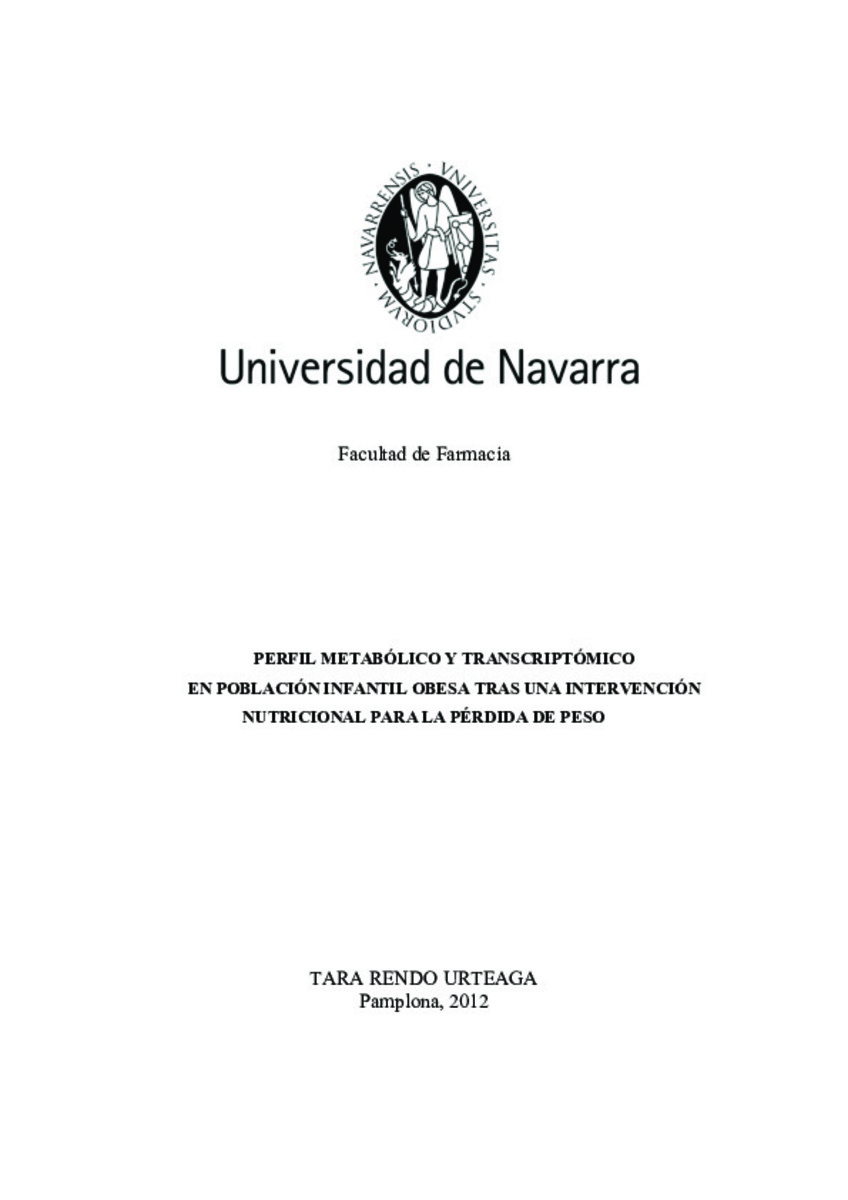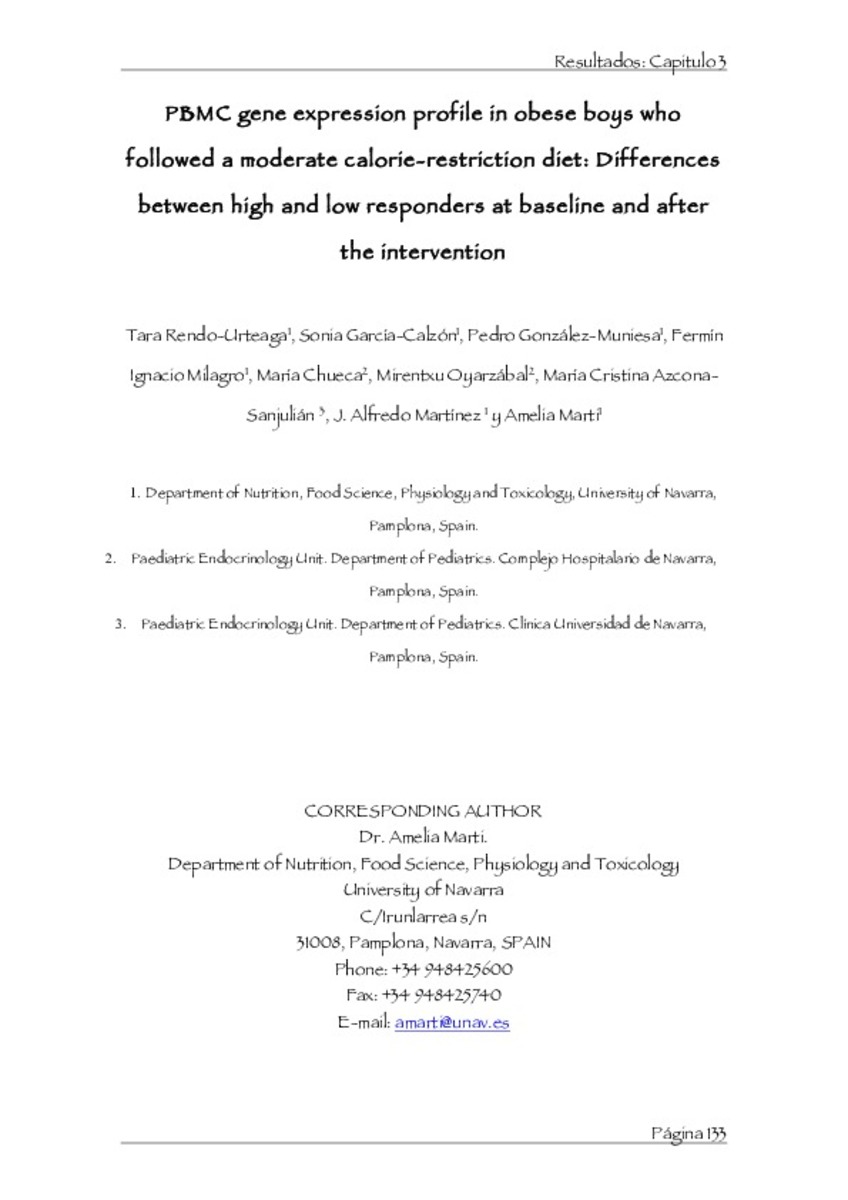Perfil metabólico y transcriptómico en población infantil obesa tras una intervención nutricional para la pérdida de peso
Keywords:
Ciencias de la nutrición
Población infantil
Materias Investigacion::Farmacia
Materias Investigacion::Ciencias de la Salud::Nutrición y dietética
Niños
Genética humana
Defense Date:
12-Dec-2012
Publisher:
Servicio de Publicaciones de la Universidad de Navarra
Citation:
RENDO URTEAGA, Tara. “Perfil metabólico y transcriptómico en población infantil obesa tras una intervención nutricional para la pérdida de peso”. Martí, A. y Martínez, A. (dirs.). Tesis doctoral. Universidad de Navarra, Pamplona, 2012
Files in This Item:
Description
Tesis doctoral Tara Rendo Urteaga
Description
Capítulo 3, Resultados
Statistics and impact
0 citas en

0 citas en

Items in Dadun are protected by copyright, with all rights reserved, unless otherwise indicated.








